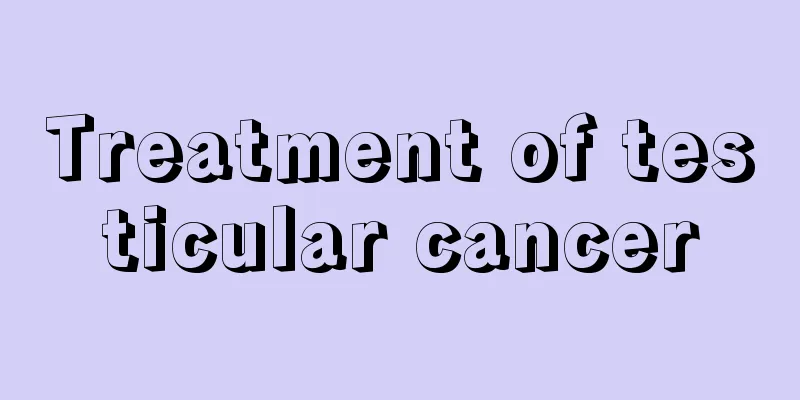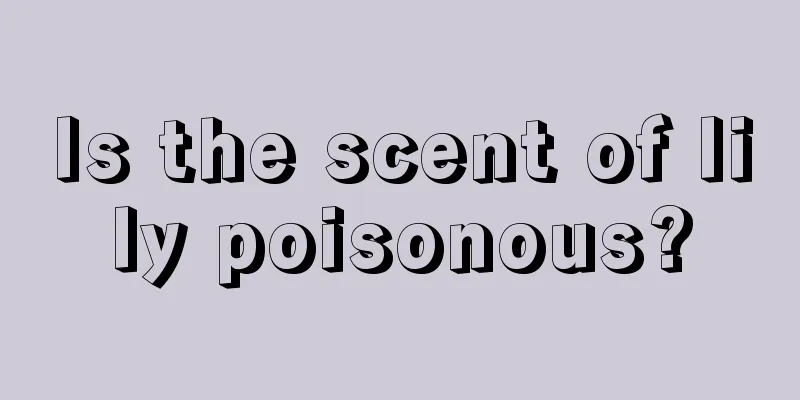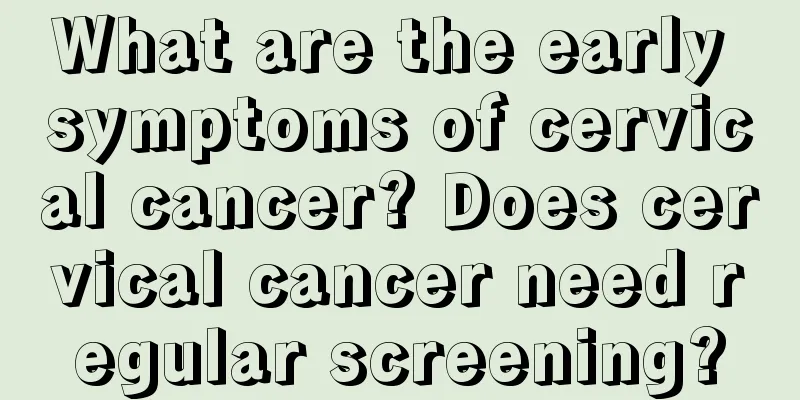Treatment of testicular cancer

|
Testicular cancer is a tumor disease that occurs in the testicular tissue of the male genitals. It has a great impact on men's physical health and can easily lead to male infertility. Once a male friend has testicular cancer, he should actively cooperate with the treatment. So what are the treatments for testicular cancer? Today I will explain to you the treatments for testicular cancer. Common treatments for testicular cancer include: 1. Radiation therapy for testicular cancer Radiation therapy uses high-energy rays to kill cancer cells and shrink the tumor. Radiation therapy is a local treatment that affects only cancer cells in the area being treated. To treat testicular cancer, doctors use an accelerator outside the patient's body to send high-energy rays to the lymph nodes in the abdomen. Spermatogonia are very sensitive to radiation. Non-spermatogonia are not sensitive to radiation, so radiation therapy is not usually used for non-spermatogonia. Radiation therapy should be used after orchiectomy. How can testicular cancer be cured faster? Radiation therapy affects not only cancer cells, but also normal cells. The side effects of radiation therapy usually depend on the dose of treatment. Common side effects include fatigue, skin changes in the treated area, nausea, and diarrhea. Radiation therapy can affect the patient's sperm production, and most patients will still be fertile within 1 to 2 years. 2. Chemotherapy for testicular cancer Chemotherapy is a method of killing cancer cells throughout the body with anticancer drugs. Chemotherapy is often used after surgery to kill any cancer cells that remain after surgery. This method is called adjuvant therapy. Chemotherapy can also be used as the first treatment if the cancer is in an advanced stage. Most anticancer drugs are given by injection directly into a vein. 3. Surgery for testicular cancer The procedure of removing part of a testicle through the groin is called a terminal inguinal orchiectomy. Men who undergo this treatment may worry that removing one testicle will affect their sexual ability and may cause infertility. However, men with only one healthy testicle can still have normal erections and produce sperm. Therefore, surgical removal of one testicle will not make a man impotent or infertile. In addition, during the operation, the doctor can place an artificial testicle in the scrotum. This artificial testicle weighs and feels like a normal testicle, and people who don't know it can't tell the difference between an artificial testicle and a natural testicle by appearance. |
<<: In what ways does a pituitary tumor harm the human body
>>: Cure rate after recurrence of testicular cancer
Recommend
What is soft tissue infection and how to care and prevent it
Soft tissue infection is a suppuration phenomenon...
What is the cause of pelvic pain
The pelvis is the area of the body located at t...
What vitamins are lacking that cause peeling feet
There are many reasons for peeling feet. For exam...
What are the early symptoms of lung cancer? Introduction to 8 early symptoms of lung cancer
The incidence of lung cancer in my country has be...
How to quickly eliminate alcohol rash
Wine culture is extensive and profound, however, ...
Cardiac cancer may also cause symptoms such as upper gastrointestinal bleeding
Cardiac cancer may also cause upper gastrointesti...
What is the correct way to use disposable masks
Disposable masks are very important to us. No mat...
How long does gout pain last?
With the improvement of daily living standards, s...
What are the symptoms of middle and late stage lung cancer? These are the common manifestations of middle and late stage lung cancer
What are the symptoms of mid- to late-stage lung ...
Analysis of the five major treatment methods for gastric cancer
Gastric cancer is one of the most common malignan...
How to read urine routine test report
I believe that in daily life, most people don’t k...
Can I drink soy milk if I have pancreatitis
Pancreatitis is a common clinical disease and may...
Can I eat soft-shelled turtle in summer?
Turtle is a high-protein food. Eating turtle regu...
How long should facial cleanser stay on the face
Every woman has a bottle of facial cleanser. Faci...
Glucose hydrochloride takes effect
As we age, our physical health will decline, espe...









